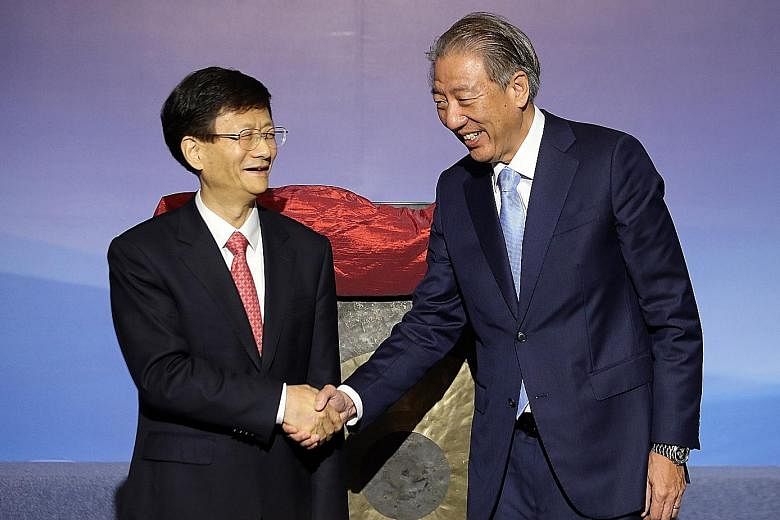When an elderly woman was taken off public assistance in April, an online article implied it was because she was dying from terminal cancer.
Not true, said the Government, publishing a rebuttal on its website to set the record straight: the woman had Central Provident Fund (CPF) savings and owned a fully paid-up flat.
The episode earlier this month was highlighted by Minister for Social and Family Development Tan Chuan-Jin yesterday when he set out how the Government uses the Internet to counter misinformed views.
He made the point at the third Singapore-China Social Governance Forum held here, attended by 100 officials from both sides looking for fresh ways to govern in a diverse society.
The biannual forum is a key cooperation platform which Singapore and China take turns to host.
China is widely seen as a country of one people and one language, but it is not so, said its officials.
With 56 ethnic groups, 1.3 billion people and a territory of 9.6 million sq km, China is in fact incredibly diverse, said its Political and Legal Affairs Commission secretary-general Wang Yongqing.
In multiracial Singapore, the Government manages a diverse society too, but on a much smaller scale.
Still, both face similar changes, said their top officials, citing four areas where they have useful experiences to share and adapt for themselves.
First, Singapore and China need to ensure that different ethnic groups live side by side in harmony.
Second, migration trends mean new migrants need to be integrated into existing communities.
Rapid urbanisation in China, for instance, has caused its urban population to swell by 21 million a year in the last 15 years.
Third, both need to tackle economic inequality to ensure the less well-off are not left behind while the wealthy gets richer and richer.
Singapore does it by ensuring everyone can access good education and training, said Deputy Prime Minister Teo Chee Hean in his keynote speech at the forum's opening.
Fourth, views and interests have become more pluralistic, and officials on both sides spoke of the need to guard the common space while accommodating this new diversity of views. This is why the Singapore Government has adopted a strategy of engagement and consultation, said Mr Tan.
Ministers and ministries have a strong social media presence, while still meeting people in person.
"With today's technology, conversations happen online whether or not we are there," said Mr Tan.
To reach out to more people more meaningfully, "we have to go where the chatter is and create our own online conversations", he added.
The strategy lets the Government understand the differences in society, while making people aware of different viewpoints.
Singapore's approach, however, is still a work in progress, he said, adding that it is finding new ways to have discussions as values evolve.
China is also harnessing the Internet to make sure its governance is systematic and coordinated, said Chinese delegation leader Meng Jianzhu, a member of the Political Bureau of the Communist Party of China (CPC).
"There must be information exchange, resource sharing and cooperation between different sectors of society," said Mr Meng, who is also secretary of the CPC Central Committee's Political and Legal Affairs Commission.
Several junior ministers on both sides also spoke in closed-door sessions on the rule of law, cyber security and urbanisation.
All said diversity can be a source of strength if managed wisely.
"We celebrate and draw strength from our diversity," said Mr Teo.
"But we also recognise the importance of managing our diversity well so we can continue to reap the benefits, rather than be pulled apart by our differences and retreat into exclusivism and extremism."


